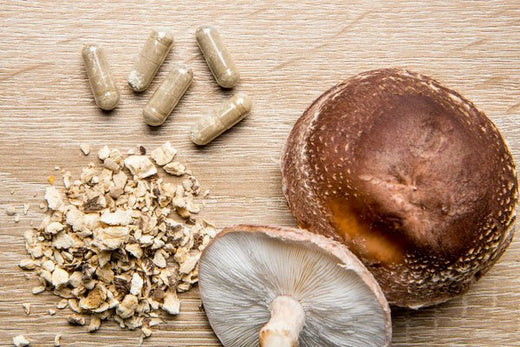10 Methods to Slash Your Encounter with Toxic Metal-Infused Food

Many people remain unaware of its harmful effects, despite it being a prevalent issue. It's crucial to recognize that even if you think you're not affected, the truth might surprise you.
Daily exposure to low levels of heavy metals is a significant problem that often goes unnoticed. Our environment is constantly bombarded with pollutants and chemicals, making it challenging to avoid them entirely. Shockingly, heavy metals are now present in alarming quantities in various sources such as water, certified organic foods, superfoods, herbs, vitamins, and dietary supplements, as well as seemingly harmless items like children's toys, jewellery, cosmetics, non-stick cookware, and plastic containers. This poses a serious risk.
Moreover, newborns are at considerable risk due to the toxic burden passed on from their mothers. A study conducted in 2004 by the Environmental Working Group (EWG) discovered an average of 287 toxins, including mercury, fire retardants, pesticides, carcinogens, and neurotoxins, in the umbilical cord blood samples of newborns.
Considering these alarming findings, it is crucial to incorporate foods into our diet that support our body's natural detoxification processes. A sporadic juice cleanse is no longer sufficient, as our bodies are under constant assault from toxins. Gentle detoxification on a regular basis becomes necessary to effectively eliminate the toxins we encounter daily.
Table of Contents
Among the most harmful ones are mercury, lead, arsenic, and cadmium

These four heavy metals are the most damaging to human health. There are many others that cause considerable risk at high levels, but these four are among the worst:
Mercury
Mercury is extremely toxic to our bodies, regardless of the amount. It serves no purpose and can severely impact the nervous system, leading to brain and kidney damage, cognitive decline, and various effects on brain function such as irritability, shyness, tremors, vision or hearing changes, and memory problems.
Lead
The risks of lead exposure have been known for quite some time. It is classified as a probable human carcinogen, capable of affecting every organ and system in the body. Chronic high levels of lead in the blood are associated with decreased intelligence, and neurological impairment, and can also harm heart and bone health, as well as cause brain and kidney damage and behavioral disorders.
Arsenic
Arsenic is a well-known human carcinogen that affects multiple organs, including the skin, lungs, liver, and bladder. It exerts its toxicity by interfering with the body's detoxification system and deactivating around 200 enzymes, particularly those involved in cellular energy pathways, DNA synthesis, and repair.
Cadmium
Cadmium exposure mainly occurs through contaminated foods. Even at low levels, cadmium is toxic and has been linked to heart disease, eye, skin, lung, and kidney disorders. An excess of cadmium is also associated with peripheral neuropathy.
From where does it all arise?
The sources of heavy metal contamination in natural foods and products can be attributed to several factors.
For instance, the very products we consume, such as organic foods, herbs, vitamins, and dietary supplements, may be grown in soils that contain high levels of heavy metals. In countries experiencing rapid industrialization, like India and China, farmland is often in close proximity to urban areas. This proximity exposes the farmland to potential pollutants from factories, roads, and other heavily polluted areas. Sometimes, fertilizers, herbicides, or insecticides containing heavy metals may also be used.
Moreover, contamination can occur through the runoff and catchment areas of rivers and streams. Industrial pollution can find its way into these waterways, leading to the dispersion of heavy metals downstream. This is particularly concerning as these contaminated water sources can end up irrigating crops.
Additionally, the manufacturing facilities themselves can be a source of cross-contamination. Different processing methods and techniques employed during manufacturing can introduce heavy metals into the raw materials used.
Therefore, it is crucial to examine each stage of the manufacturing process to identify potential points of heavy metal contamination. A reputable company will be transparent about the sources of its ingredients and manufacturing methods to ensure consumer trust.

What are the telltale signs that you are heavy metal toxic?
If you have heavy metal toxicity may not be obvious at first. It's possible you're totally oblivious to it. Are you experiencing fatigue and irritability? Do you have brain fog, memory loss, or more serious conditions like Alzheimer's, depression, or neurological disorders? These toxic heavy metals can contribute to a wide range of diseases.
Heavy metals accumulate in the body over time. Their harmful effects may not be immediate but can range from subtle symptoms to severe diseases. When levels of heavy metals reach a certain point, overall health can decline significantly, affecting the optimal functioning of the brain, kidneys, liver, heart, skin, reproductive organs, and other systems. Even individuals considered "healthy" and who follow proper dietary guidelines can suffer from serious health issues.
Symptoms of acute heavy metal toxicity are easier to recognize compared to chronic exposure. Signs of acute toxicity may include
- sudden and severe cramping, convulsions,
- nausea,
- vomiting,
- sweating,
- headaches,
- difficulty breathing, and
- impaired cognitive, motor, and language skills.
On the other hand, symptoms of chronic low-level exposure to heavy metals are more subtle and can manifest as:
- Fatigue
- Digestive problems and reduced ability to process fats effectively
- Joint soreness and aches
- Depression
- Impaired blood sugar regulation
- Menstrual problems, infertility, miscarriage, pre-eclampsia, hypertension in pregnancy, and premature birth are all examples of problems that can arise during a woman's reproductive years.
Do any of these symptoms sound familiar? Perhaps you or someone you know has experienced some of these before.
It is evident that all heavy metals can disrupt healthy cellular function and trigger oxidative stress. The levels considered "dangerous" or "toxic" vary for each person, depending on their genetics, diet, and overall health. However, many environmental scientists firmly believe that minimizing exposure to dietary heavy metals is crucial for human health. It is essential to make conscious efforts to avoid them as much as possible.
Nine Tips For Reducing Hazards
Here are nine ways to minimize your risk of exposure to heavy metals:
- Choose all-natural and organically grown foods whenever possible.
- Source your food from local and native environments, and prioritize seasonal eating.
- Limit consumption of unnatural and processed foods, especially those high in sugar.
- Include fermented foods and healthy fats in your diet, such as plant and animal sources of omega-3 fats, while reducing your intake of omega-6 fats from vegetable oils.
- Get more vitamin C by eating more citrus fruits and vegetables.
- Consider supplementing your diet with natural foods known to support heavy metal detoxification, such as parsley, cilantro, seaweeds, chlorella, spirulina, activated charcoal, bentonite clay, zeolites, DMSA, and Fulvic Acid supplements.
- Get more sunlight to boost your vitamin D levels, which is crucial for a healthy immune system.
- Sweat it out by using infrared saunas, as they can assist the body in eliminating toxins and heavy metals.
- Incorporate adaptogenic herbs into your routine to help the body better adapt to stressors like heavy metal toxicity. Consider trying an Ashwagandha herbal product.
How do we fix this?
As for the solution, it is essential to strengthen the current regulatory framework of the industry. Currently, there are no enforced limits on heavy metal levels to protect consumer health. This means that products can legally be sold even if they contain dangerously high levels of toxic heavy metals like mercury, lead, arsenic, or cadmium, which are proven to be harmful.
To address this, a new quality standard must be established to ensure that all food products on the market are verified and do not exceed safe limits for heavy metals.
In the meantime, it becomes the responsibility of natural and organic product manufacturers to conduct independent heavy metal testing on their products until new regulatory rules and upgraded standards are established. Educating yourself and asking companies about their independent heavy metal testing practices is crucial in making informed choices.
The Gold Standard By Teelixir

We are excited to introduce the Teelixir 'Gold Standard' stamp, which represents our commitment to exceptionally high-quality products. This standard ensures that Teelixir customers, including ourselves (because we consume these superfoods too!), can trust that our offerings have been verified to have extremely low levels of heavy metals.
Our goal is to provide products sourced from the purest, cleanest, and most natural places on Earth, guaranteeing their safety for consumption. If it's not safe for us and our families, we won't sell it. That's our bottom line.
Keep an eye out for this stamp on Teelixir products. We hope that this voluntary standard meets your highest quality expectations. We are dedicated to bringing you only the most natural superfood products that support, optimize, and enhance your health, energy, and performance. Our aim is to empower you to conquer your day and achieve your deepest dreams and desires.
We'd love to hear from you if you have any thoughts on how we can do better. Please reach out to us at info@teelixir.com.
References:
- https://www.ncbi.nlm.nih.gov/pmc/articles/PMC4427717/
- http://articles.mercola.com/sites/articles/archive/2003/12/27/toxic-metals-part-one.aspx
- http://articles.mercola.com/sites/articles/archive/2008/07/22/toxic-metals-the-reason-you-still-feel-sick.aspx
- https://www.engg.ksu.edu/chsr/files/chsr/outreach-resources/15HumanHealthEffectsofHeavyMetals.pdf
- https://www.webmedcentral.com/wmcpdf/Article_WMC00535.pdf
- https://www.ncbi.nlm.nih.gov/pubmed/12897217
- http://labs.naturalnews.com/Heavy-Metals-Arsenic.html
- http://www.ewg.org/research/body-burden-pollution-newborns
- http://articles.mercola.com/sites/articles/archive/2008/02/09/some-folk-medicines-contain-lead.aspx
- https://www.globalhealingcenter.com/natural-health/effects-of-toxic-metals/






